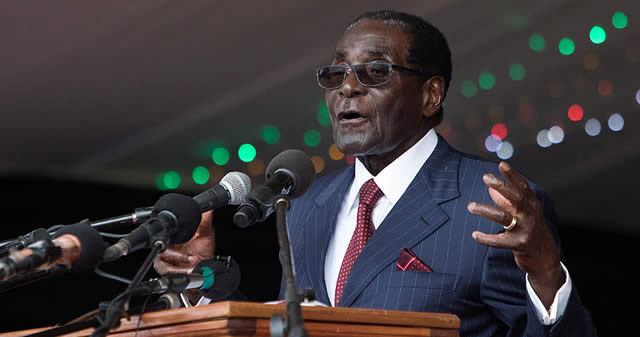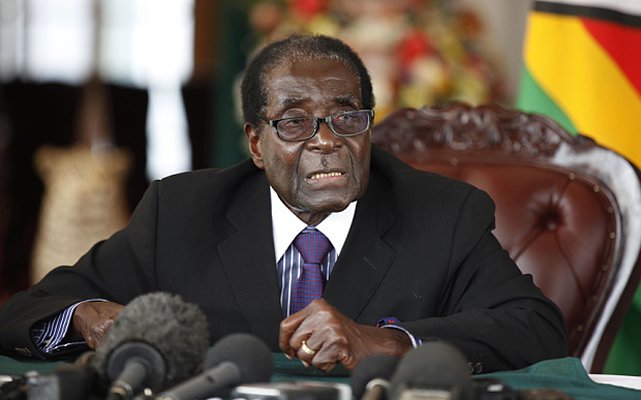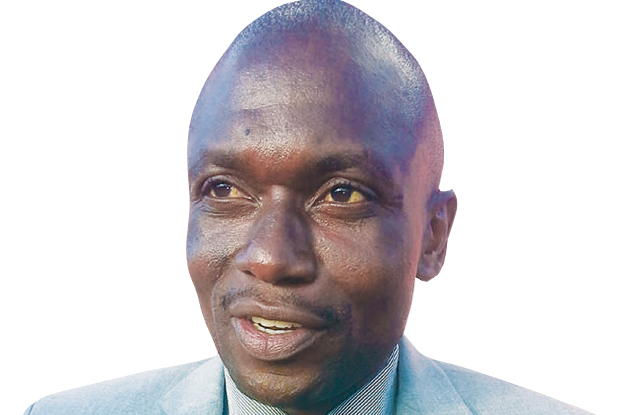Mr Obama, tear down these sanctions!

Joram Nyathi, Spectrum
Not once have these people who purport to care about the suffering people of Zimbabwe mobilised a march to the American embassy against the iniquitous sanctions. It is America itself which is having to behave in extraordinary ways against its own sanctions, piecemeal. Perhaps it is time Zimbabweans spoke in unison: Mr Obama, remove those sanctions
THE justification for America’s imposition of sanctions on Zimbabwe in 2001 would be risible if it did not entail the strangulation of the economy of a small African nation thousands of kilometres away, whose location few Americans can find on the world map. But that also speaks to the power of an idea.
Those sanctions were followed by Executive Order 13 288 of 2003 signed by American President George W Bush, “declaring a national (American) emergency to deal with the unusual and extraordinary threat to US foreign policy posed by the situation in or in relation to Zimbabwe”.
That Executive Order was meant to complement and reinforce the Zimbabwe Democracy and Economic Recovery Act passed by the US Congress earlier in 2001.
Many companies and individuals deemed to constitute the core of that “unusual and extraordinary threat” found themselves hit by sanctions. That list included President Mugabe.
Since then, slowly and capriciously, the US has removed individuals and companies now deemed less threatening to its foreign policy. It made the same gesture this week on Tuesday, strangely against a spirited campaign by opposition groups that Zimbabwe should remain under sanctions and not receive help from multilateral financial institutions.
Individuals and selected companies were dropped from the sanctions list by its Office for Foreign Assets Control.
Apart from the deceased, so far no explanation has been given. But President Mugabe remains.
Not without cause. He symbolises an idea which cannot be allowed to flourish — that it is possible for formerly colonised people to reclaim what was forcibly taken away from them at the point of conquest and colonisation.
But first let’s examine the irony. In 2000 Zimbabwe embarked on an uncharted path to reclaim its land. It did not invade any country where America had interests.
The land reform programme was a national imperative and remains such if Zimbabwe is to become a full democracy. That’s what Zimbabweans fought for. There is something cynical about a democracy in which a small race of people of foreign stock retain special colonial privileges over a nation’s key resource such as land.
That is the myth of democracy which the land reform programme sought and seeks to challenge and upset. The former colonial power Britain did not like that. But it was something that would be difficult to argue at the United Nations, even one dominated by powerful racist nations.
How do you deny people ownership of their land simply because they were your former colony? What is the meaning of independence? Why should human rights exclude access to land?
It was therefore easier to enlist the support of a kindred spirit like the US. That’s how Uncle Sam came into Zimbabwe’s fight for control of its land.
It now sought to grow democracy in Zimbabwe through a sanctions regime. Similarly, the economy required sanctions to recover. That’s how we ended up with the cynically framed “Zimbabwe Democracy and Economic Recovery Act”.
To complete the travesty, the American people were told a country in Africa, which they knew little about, “posed an unusual and extraordinary threat” to mighty America’s foreign policy.
The lie was necessary to gain the support of the people. America is the big brother. Russia had collapsed and the cold war was over. Who was it now trying to challenge America in global affairs?
Meanwhile, the agenda was made clear to Zimbabwe. The sanctions would make people stone their government officials on the streets, declared Chester Crocker.
They were a foretaste, or a dry-run for what would later be termed the Arab Spring in 2011 where ordinary people were incited and instigated to turn against their own government in search of democracy.
And America’s definition of a democracy is a political and economic dispensation under which its foreign policy and economic interests can’t be challenged. It is not about the welfare of the natives, as the people of Libya are learning, only too late in a very bitter way as they drown in the Mediterranean Sea to escape America’s never, never democracy.
That is why it is still too early to celebrate the removal from sanctions of companies such as ZB Bank, Chemplex Corporation and the Zimbabwe Fertiliser Company while retaining President Mugabe on the list. What has changed? Is this part of old divide and rule tactics? Is the land reform under threat in any way?
After all by targeting food production by sanctioning fertiliser manufacturers in March this year, America made clear its sanctions were not as targeted as we had been fooled to believe. It was gloves off if Zimbabweans didn’t have the stomach to stone their leaders out of power.
But what makes Tuesday’s decision by America extraordinary and unexpected is that it came against grit resistance. Opposition political parties and civic society organisations have been engaged in a campaign to render Zimbabwe a pariah state. That is why people like Evan Mawarire became little messiahs in a space of a few weeks.
That is how he earned his wings to America. That is why the just-ended United Nations General Assembly summit became such an important calendar event for the opposition — Zimbabwe was supposed to be a major agenda item.
After all they had been let down by conspiring and conniving Africa leaders at the Sadc summit in Mbabane, Swaziland, who were too spineless to confront Mugabe.
New York became the ultimate destination, and it turned out to be the ultimate anti-climax for Mawarire following weeks of extraordinary excitement. Here was a man who suddenly found the doors of the World Bank and International Monetary Fund flung open for him to advise on their relationship and dealings with the regime in Zimbabwe. There was to be no money, no bailout package until Mugabe was out.
Now America wakes up with this most unkindest stab in the back. While self-hating Zimbabweans pleaded for more stringent sanctions, America gives them a slap in the face!
There is no other way to look it. There have been demonstrations in this country against nearly every policy government has tried to implement — SI64 of 2016 to protect and promote local manufacturing, introduction of bond notes to improve the liquidity situation and reduce externalisation of scarce foreign currency — all to foster an impression of a government that is clueless and is not doing anything to build the economy.
Some have gone to court to stop the bond notes before they are introduced.
Not once have these people who purport to care about the suffering people of Zimbabwe mobilised a march to the American embassy against the iniquitous sanctions.
It is America itself which is having to behave in extraordinary ways against its own sanctions, piecemeal. Perhaps it is time Zimbabweans spoke in unison: Mr Obama, remove those sanctions.









Comments